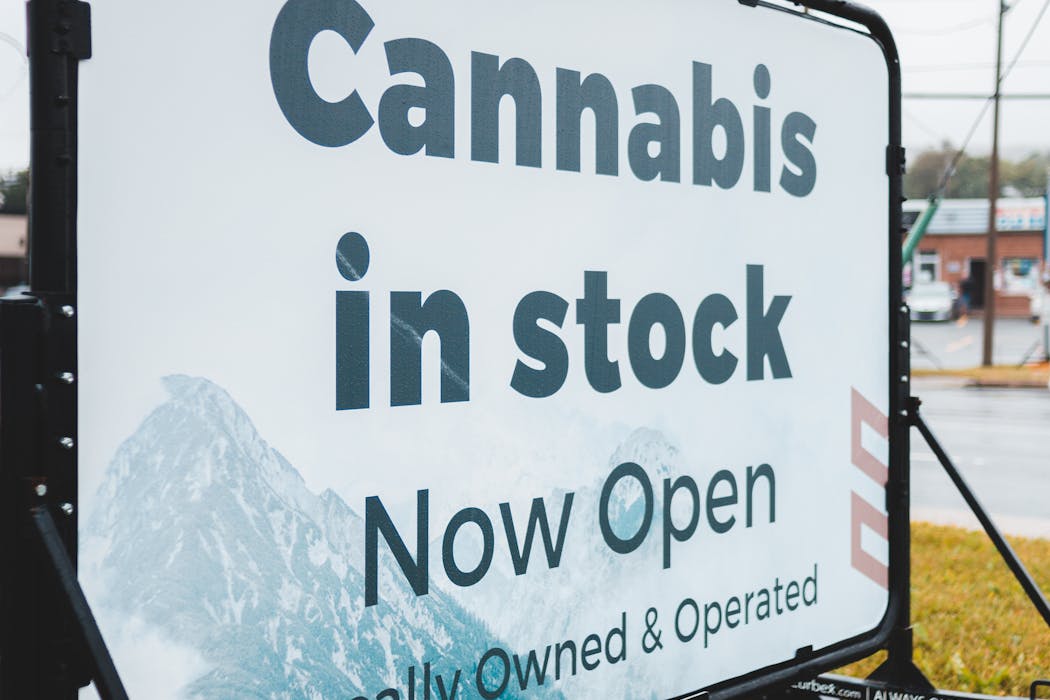As a background check specialist working closely with Canada’s cannabis sector, I’ve witnessed a remarkable journey over the past few years. What began as a fledgling industry in 2018 with just a few thousand employees has skyrocketed into a multi-million dollar sector supporting tens of thousands of jobs by 2021 according to Deloitte Canada analysis commissioned by the Ontario Cannabis Store.
Despite this early post-legalization growth, finding and hiring the right talent in the legal cannabis field remains anything but easy. From navigating a maze of regulations to overcoming social stigma and intense competition for specialized skills, cannabis employers face a unique set of HR hurdles.
The good news is that forward-thinking companies are innovating with creative recruitment strategies, academic partnerships, inclusive hiring, and compliance-minded practices to turn these challenges into opportunities.
In this blog post, I explore the complex and evolving talent landscape of Canada’s cannabis industry in early 2025 and how experts and industry leaders are addressing the toughest recruiting challenges with savvy solutions.

The Regulatory Maze: Complexity and Compliance Risks
One of the first things any cannabis employer learns is that regulation touches every aspect of hiring.
Canada’s cannabis laws impose strict rules on who can work in the industry and under what conditions. For instance, Health Canada requires security clearances and criminal record checks for key personnel at licenced producers and even at retail stores, making background screening a non-negotiable step in hiring.
Each province has its own additional regulations, too. In Ontario, retail staff must complete a board-approved training (the CannSell certification) and employers must keep background check records on file. Other provinces have their own nuances, so HR teams must stay fluent in a patchwork of rules to remain compliant.
Cannabis Criminal Record Checks for Compliance
The stakes are high. A bad hire isn’t just a performance issue, it can threaten a company’s licence. Federal rules were designed to keep organized crime out of the legal industry, so hiring someone with such connections could put the entire operation at risk. If an employee has undisclosed ties to organized crime or diverts cannabis to the illicit market, regulators can crack down hard, potentially jeopardizing the business. Even an ill-advised mistake by a retail staff member (like selling to a minor or pocketing product) could trigger penalties on the store’s licence.
Compliance due diligence isn’t optional, it’s a core part of the hiring process. As covered in our blog post on cannabis criminal record checks, cannabis employers are responding by making background checks and vetting procedures more robust and frequent. Many stores run criminal record checks on new hires and even repeat them annually to catch any new issues. In such a tightly regulated space, a reliable and fast background check can be a game-changer.
I often advise clients that risk mitigation in hiring is one of their biggest priorities. That means investing in efficient background screening (to verify candidates meet all legal requirements), developing clear internal policies (for example, zero tolerance on diversion and regular compliance training), and staying up to date on regulatory changes. Companies at the forefront are even coordinating with regulators to clarify grey areas and ensure their hiring practices meet or exceed standards. By treating compliance as an integrated part of recruitment, rather than a last-minute checkbox, cannabis firms reduce the risk of costly hiring mistakes. In a sector where “due diligence is an ongoing requirement” by law, those who hire carefully can move faster on opportunities, knowing their bases are covered.

Lingering Stigma: Overcoming the Cannabis Career Taboo
Legalization may have transformed cannabis into a “legitimate” business, but stigma dies hard. Decades of prohibition and negative perceptions still cast a long shadow over cannabis careers, affecting both candidate interest and mobility. I’ve spoken with many talented professionals who are “canna-curious,” excited by the industry’s growth, yet hesitate to join because they worry what friends, family, or future employers might think. This isn’t just anecdotal. Industry recruiters consistently report that some candidates balk at cannabis job offers due to the sector’s image. There is a large number of people averse to the industry based on perception, which reflects in hiring.
That perception includes outdated notions of cannabis work being legally or morally dubious, even years after legalization. For senior or experienced workers, the stigma can be a career strategy concern. Some people worry that joining a cannabis firm could be a one-way street, limiting their ability to return to more traditional industries later. On being cautious to enter the sector, Alison McMahon, chief executive officer at Cannabis at Work, explained to Benefits Canada that “I think certain people are still potentially concerned that moving into the cannabis sector could be kind of ‘career suicide,’ that if they were to move to the cannabis sector and wanted to go back to a different, more traditional sector, that that might be hard for them to do because of the stigma.”
So how are cannabis companies tackling the lingering stigma? Education and normalization are key. Many employers have become vocal about the positive aspects of cannabis careers—innovation, growth, and the chance to shape a new industry—to reframe the narrative. Progressive firms highlight these aspects in recruitment pitches, emphasizing that skills gained in cannabis (like scaling startups, navigating strict regulations, leading M&A or IPO efforts) are highly valuable and transferable. There’s also a subtle but important cultural shift underway. The stigma is fading as the industry matures. Each year that passes, with cannabis companies contributing to the economy, creating jobs, and playing by the rules, is another blow to old stereotypes.
Growing Pains: Rapid Growth and Shifting Organizational Needs
The pace of growth in Canada’s legal cannabis sector has been nothing short of dizzying.
In the year following legalization (October 2018 to late 2019), licenced producers went from around 2,600 employees to over 9,200, an increase of more than 6,500 jobs practically overnight. By 2021, the industry (directly and indirectly) had helped create an estimated 151,000 jobs across Canada, contributing over $43 billion to GDP. New stores popped up in every province, and companies scaled from scrappy startups to major enterprises in a blink.
This breakneck expansion was thrilling, but it also led to serious growing pains in HR. Many cannabis businesses found themselves scrambling to build HR infrastructure on the fly, defining roles and organizational charts in an industry with no precedent. “There’s no ‘typical’ in cannabis at this time—every company is unique,” noted a report by cannabis recruiting firm FlowerHire. Early on, few standard job titles or career paths existed, making it challenging to figure out whom to hire and what to even call them. One company’s “cultivation manager” might have a completely different scope of duties than another’s, depending on their size, technology, or product focus.
With each new wave of growth, edibles in 2019, extracts and topicals, or the current push into beverages and beyond, organizations have had to evolve their talent needs on the fly. This rapid change has created a sort of perpetual motion in cannabis HR departments. Companies that hired en masse in 2019 and 2020 to ramp up production later had to pivot, sometimes downsizing or reassigning staff as the market shifted from explosive growth to consolidation. (Indeed, by 2023 the industry’s overall contribution to GDP had plateaued and even dipped slightly, reflecting a phase of market saturation and cost cutting.)
The result is an environment where workforce planning is a moving target. One month, a producer might urgently need extraction technicians and quality assurance specialists to launch a new product line; the next, they might freeze hiring in those areas and instead seek sales and marketing talent to differentiate their brand in a crowded market.
For HR leaders, the challenge is building flexible teams that can adapt as the company’s strategy changes. Cannabis firms often joke that “there’s no playbook,” so they value employees who can wear multiple hats and thrive in ambiguity. This is why candidates with startup experience or backgrounds in fast-changing fields (like tech) are highly prized. At the same time, as the industry matures, companies are bringing more formal structure: seasoned executives from consumer packaged goods (CPG), pharmaceuticals, or alcohol are being recruited to introduce best practices in operations and governance.
It’s a delicate balance between keeping the entrepreneurial spirit and installing some corporate rigour. I’ve seen organizations restructure multiple times in a year to get it right. For example, separating roles that were once combined (splitting a “VP of Operations” into distinct supply chain and compliance officers as the workload grew), or creating entirely new departments like R&D or export compliance as opportunities emerge.
In such a dynamic setting, talent needs can change quickly, and job descriptions rarely stay static. Cannabis HR teams have learned to stay agile: continuously mapping skills in-house, forecasting gaps, and sometimes making tough calls to realign the workforce with strategic priorities. It’s not always smooth, these are “growing pains” after all, but the companies that communicate clearly with their teams and invest in upskilling tend to navigate the shifts more successfully.
Despite a few bumps, the industry’s trajectory is still upward. As 2024 drew to a close, cannabis businesses were still hiring actively across cultivation, retail, marketing and compliance, preparing to “hit the ground running” this year. The key is making sure the right people are in the right roles when the next growth spurt (or plot twist) comes.
Talent Wars: Competition for Specialized Skills in a Young Industry
Walk into any cannabis facility or retailer today and you’ll find an array of specialized roles that barely existed a decade ago: master growers, extraction chemists, QA technicians, edibles product developers, compliance officers, retail managers, and more. As the industry expanded, the demand for such niche expertise has surged, and companies often find themselves fishing in a very small talent pool. The result? An intense “war for talent” in many specialized areas.
Competition is especially fierce for candidates with prior cannabis experience, since the industry is still young and there aren’t many veterans. A recent Canadian recruiting analysis observed that companies have been “repeatedly rehiring the same talent,” with some professionals cycling through three to five cannabis employers in just a few years.
This “talent recycling” isn’t just anecdotal. You can see it on LinkedIn, where a handful of seasoned cultivation directors or regulatory managers hop between competing firms that are all desperate for their know-how. The downside is obvious, poaching and turnover drive salaries up and can lead to burnout, and organizations might become insular if they keep trading the same ideas. Forward-thinking companies are now broadening their search. While they still value cannabis-specific experience, they recognize the need to bring in fresh talent from outside industries. “We need to welcome fresh ideas and talent eager to enter the industry,” urges Graydon Welbourn, co-founder of the cannabis staffing firm, White Ash Group, noting that insisting on prior cannabis experience for every hire will only worsen the talent crunch.
Many skills are transferable. A pharmaceutical quality control specialist or a food science graduate can be trained to become an excellent cannabis extraction technician; an experienced retail manager from the liquor industry can learn the ropes of running a dispensary. Again, companies are increasingly tapping talent from neighbouring sectors like agriculture, CPG, biotech, and hospitality. These candidates bring valuable expertise in regulated environments, operations and customer service, while also enlarging the overall talent pool.
Certain positions remain hard to fill no matter what. Lab technicians knowledgeable in cannabis analytics, experienced cultivation managers for large-scale grows, and regulatory compliance officers are worth their weight in gold. In late 2024, cannabis companies across the country were advertising for roles like “Tissue Culture Specialist,” “Extraction Operator,” and “Packaging Compliance Specialist,” reflecting the need for highly specific skill sets. Salaries for these roles have become very competitive.
According to industry insiders, a quality assurance professional with a couple of years of cannabis experience can command a premium, and talented growers often receive multiple offers. This competition isn’t just about money, though. Employer branding and culture matter when the talent supply is limited. Companies that can tout a great work environment, development opportunities, or a compelling mission have an edge in wooing scarce experts. I’ve seen businesses offer creative perks, from equity in the company, to flexible work arrangements, to chances to attend international cannabis conferences, all aimed at attracting and retaining those all-star hires who can choose where they want to work.
Some larger players have also started formal graduate trainee programs and internships to grow their own talent pipeline, especially for lab and cultivation roles. In an industry that effectively went from 0 to 100 in a few years, building a deep bench of skilled workers will take time. But the combination of opening doors to outside talent and nurturing new entrants from within will, in the long run, ease the talent crunch. Until then, the battle rages on, which is good news for individuals with the right skills, but a continuing challenge for HR teams tasked with staffing up specialized operations.
New Solutions: How Cannabis Employers Are Turning Challenges into Opportunities
In the face of these challenges, regulatory hurdles, stigma, rapid change, and talent shortages, Canada’s savviest cannabis companies aren’t sitting idle. They’re pioneering solutions that not only address immediate hiring pain points but also strengthen the industry’s foundation for the future.
Here are several ways forward-thinking employers are tackling cannabis recruiting challenges head on:
Innovative Recruitment Practices
Cannabis firms are getting creative in how they source and attract talent. Traditional recruiting platforms sometimes fall short (few candidates search “cannabis compliance job” on generic boards), so companies are meeting candidates where they are. This includes networking at industry conferences and meetups, hosting virtual career fairs, and leveraging specialized recruiting agencies that focus on cannabis. Some are actively “engaging the market proactively,” organizing workshops and info sessions about careers in cannabis. Not only do these efforts help locate talent, they also build the company’s credibility and employer brand.
A great example is how one retailer partnered with a local community center to host monthly “Cannabis Careers in Cannabis” nights, demystifying the industry for job seekers and even inviting regulators to speak about compliance (an educational approach that chips away at stigma while funneling interested candidates into their hiring pool).
Tapping adjacent industries remains a top strategy: HR teams now routinely target candidates from sectors like alcohol, food processing, logistics, or cosmetics (for extraction and formulation roles) by highlighting the overlap in skills. Essentially, cannabis companies are learning to pitch themselves not just as cannabis companies, but as modern employers with cutting-edge work. This widens the net beyond the usual suspects. Once they’ve attracted applicants, many are refining their selection process to account for the industry’s uniqueness. Instead of rigidly requiring “5 years of cannabis experience,” they assess underlying competencies and cultural adaptability. This open-mindedness allows them to snag high-potential hires who might have been overlooked otherwise.
Partnerships with Post-Secondary Institutions
Recognizing that a sustainable talent pipeline must be built, several cannabis businesses have forged partnerships with colleges and universities to train the next generation of workers. In fact, educational institutions across Canada have launched cannabis programs, often in collaboration with industry.
Niagara College’s Commercial Cannabis Production post-grad certificate, for instance, was developed with input from licensed producers specifically to address the shortage of skilled, highly trained individuals for cultivation and production roles. Only 24 students per cohort are admitted, practically guaranteeing a job at program’s end due to high demand for their skills.
While it’s no longer operational, in New Brunswick, the provincial government teamed up with a local community college and licenced producer, Organigram, to offer a 12-week Cannabis Cultivation Technician program, directly linking graduates to employment opportunities. These kinds of partnerships are win-win: students get marketable skills and often internships or job placements, while companies get a stream of entry-level talent who already have industry-specific training. Some larger producers have even started offering scholarships or research funding to universities for cannabis science programs, further strengthening ties.
As the industry enters its next phase, we may see even more academia-industry collaboration. Early 2025 has been touted as a potential breakthrough year for cannabis-university partnerships, with commentators noting that as the sector matures, such collaborations are the “next logical step” to drive innovation and fill knowledge gaps. For HR leaders, these partnerships mean a more predictable inflow of new talent, a welcome relief in a tight labor market.
Equity and Inclusive Hiring Strategies
Cannabis legalization in Canada carried the promise of righting past wrongs, yet the industry’s leadership remains predominantly white and male. Forward-thinking companies understand that a diverse workforce isn’t just about social justice, it’s also good business, bringing in a wider range of perspectives and tapping communities that have been underserved. In recent years, we’ve seen major players like Canopy Growth establish dedicated Diversity, Equity, and Inclusion (DEI) programs. Canopy went as far as appointing a VP of DEI in 2021 to review HR policies and ensure diversity is “reflected and measured” throughout the company. This kind of top-down commitment signals to candidates that the industry is striving to be equitable. It’s not just the big corporations; smaller cannabis businesses are also making moves.
Some retailers, for example, have hiring programs aimed at those with prior cannabis-related convictions, recognizing the value of lived experience and offering a second chance to people who were criminalized under prohibition. Legally, there’s nothing barring someone with a past minor conviction from working in cannabis (apart from certain security clearance roles) – and it can be “commendable for operators to employ and support those affected by the criminal law,” as cannabis attorney Jack Lloyd notes. A report by the Centre on Drug Policy Evaluation in late 2023 specifically recommends including underrepresented racial groups and people harmed by prohibition in cannabis employment opportunities as a pillar of equity.
Some companies have heeded this call by partnering with community groups to recruit candidates from marginalized communities and by providing mentorship and training on the job. The result is slowly increasing diversity in the workforce, which in turn helps reduce stigma (people see friends and neighbours joining the sector) and expands the talent pool. We’re also seeing more women entering mid-level and senior roles than in the early days, thanks in part to advocacy groups and a conscious effort by some firms to balance representation. There’s a long way to go. As of 2020, 93% of Canadian cannabis boardroom positions were held by men, but these equity-focused initiatives are important steps towards a more inclusive industry. They also resonate with younger workers, who often want to work for companies that stand for something and reflect their values.
Reducing Compliance Risk in Hiring
As discussed, compliance is king in cannabis, and leading employers are embedding that mindset into their recruitment and hiring workflows. Aside from rigorous background checks, including criminal record checks, companies are improving how they assess candidates’ understanding of regulatory responsibility.
Some HR departments now include scenario-based questions in interviews (e.g., “What would you do if a customer tried to convince you to bend an ID-check rule?”) to gauge a candidate’s integrity and compliance awareness before they’re hired. Others are making compliance a selling point in job postings, making it clear that safety and honesty are core company values, which attracts candidates who share that ethos. To speed up the vetting process (critical when you’re competing for talent), many firms have adopted technology and partnerships to get background screening down to days or even hours, instead of weeks. Online background check services can often turn around results in 24-48 hours, which is a far cry from the slower, paper-based checks of the past. This allows cannabis employers to hire fast without skipping due diligence, a crucial advantage in a competitive market. This case study describes how Certn helps Fire&Flower maintain compliance with 75% fewer follow ups.
Furthermore, companies are investing in training new hires on compliance from day one. Some businesses even pair new employees with a compliance mentor during their first few months. It’s all about building a culture where everyone, from the master grower to the store cashier, feels responsible for keeping operations above board.
When employees understand why the rules matter (protecting public safety, keeping the licence, destigmatizing the trade), they become partners in compliance rather than potential liabilities. After all, a bad hire can cost far more than an empty role, if they bring regulatory trouble. By tightening up each link in the hiring chain, from background checks to interview vetting to onboarding, cannabis companies significantly lower their compliance risks while still bringing in the people they need.
The Next Chapter of Cannabis Hiring Starts Now
Six years into Canada’s grand cannabis experiment, the hiring landscape remains challenging, but it’s also richer and more resilient than ever. The early obstacles of a new industry are giving way to innovative solutions and a maturing ecosystem. Where regulatory complexity once loomed as a barrier, now there’s a playbook (however evolving) for screening and compliance in hiring.
The stigma that scared off candidates is gradually being eclipsed by success stories of professionals thriving in cannabis careers. The industry’s breakneck growth has been tempered by hard-won lessons in adaptability, and those intense talent wars are spurring companies to become better employers and educators. From my vantage point in background screening, I’m encouraged by the ingenuity and commitment I see in cannabis HR leaders and executives. They’re not content to poach from a limited pool or bemoan the skills gap, they’re actively building partnerships with colleges, welcoming diverse candidates, and doubling down on compliance and training to ensure this sector’s workforce is both competent and credible.
The conversation is far from over. As we head deeper into 2025, new questions are emerging: How will automation and tech adoption change the skills needed in cannabis? What role will immigration play in filling high-tech roles? Will social equity in hiring become a formalized part of the Cannabis Act’s mandates in the future? Forward-looking companies are already pondering these and adjusting their strategies accordingly.
One thing is certain, recruiting and retaining talent will remain a critical success factor for the cannabis industry’s next chapter. The businesses that excel will be those that continue to think outside the box when it comes to finding people who believe in the mission and are ready to grow with it. Canada’s cannabis sector may be “in the weeds” in more ways than one, but with each hiring challenge overcome, it’s cultivating a stronger foundation for long-term, sustainable growth. That’s something worth recruiting for.
These insights on Canada’s construction sector are brought to you by Certn, the country’s leading online background check provider for instant ID verification and fast, reliable criminal record checks. Learn more about how Certn can help streamline your hiring at certn.co.





